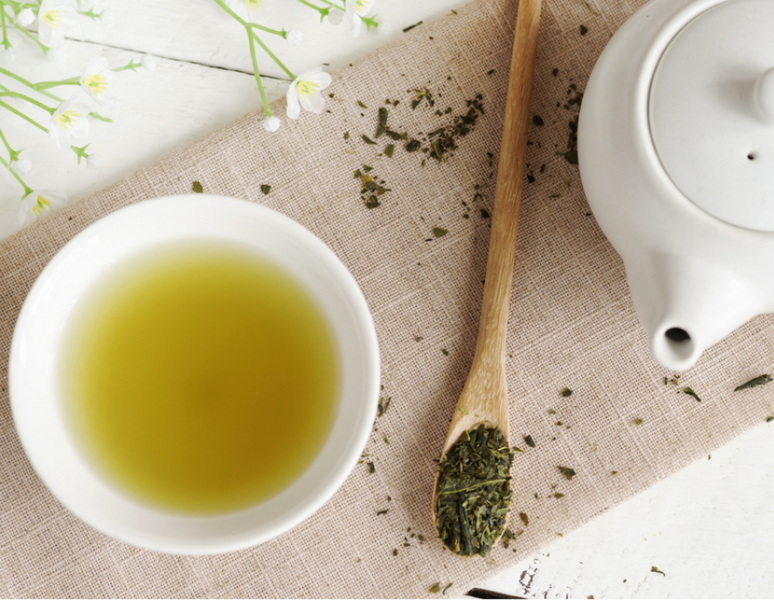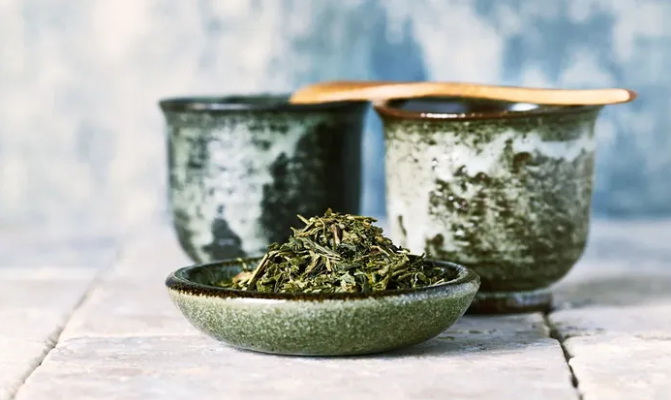Content Menu
● Potassium Content in Green Tea Extract
● Factors Affecting Potassium Content in Green Tea Extract
● Importance of Potassium in the Body
● Health Benefits of Green Tea Extract
● Recommended Intake of Potassium
● Potential Side Effects and Precautions
● How to Choose and Use Green Tea Extract
● Incorporating Green Tea Extract into Your Diet
● Conclusion
● FAQ
>> 1. How does the potassium in green tea extract compare to other sources?
>> 2. Can green tea extract help with potassium deficiency?
>> 3. Is it possible to consume too much potassium from green tea extract?
>> 4. Does decaffeinated green tea extract contain the same amount of potassium?
>> 5. How does brewing time affect the potassium content in green tea?
● Citations:
Green tea extract has gained popularity as a health supplement due to its numerous potential benefits. One of the key components that contribute to its health-promoting properties is potassium. In this comprehensive article, we will explore the potassium content in green tea extract, its importance for our health, and the various factors that influence its concentration.
Green tea extract is derived from the leaves of Camellia sinensis, the same plant used to make green tea beverages. It contains a concentrated form of the active compounds found in green tea, including polyphenols, catechins, and various minerals[1]. Among these minerals, potassium plays a crucial role in maintaining overall health and well-being.

Potassium Content in Green Tea Extract
The amount of potassium in green tea extract can vary depending on several factors, including the processing method, the part of the plant used, and the extraction technique. However, research has shown that green tea is generally a good source of potassium.
According to studies, dried green tea leaves contain approximately 2,000-2,500 mg of potassium per 100 grams[9]. This translates to about 20-25 mg of potassium per gram of dried green tea. However, it's important to note that green tea extract is a concentrated form of these leaves, and the potassium content may differ.
Factors Affecting Potassium Content in Green Tea Extract
Several factors can influence the potassium content in green tea extract:
1. Processing method: The way green tea leaves are processed can affect their mineral content, including potassium.
2. Extraction technique: Different extraction methods may result in varying concentrations of potassium in the final product.
3. Part of the plant used: The potassium content may differ between leaves, stems, and buds of the tea plant.
4. Growing conditions: Soil quality, climate, and cultivation practices can impact the mineral content of tea plants.
5. Storage and handling: Proper storage and handling of green tea extract can help preserve its potassium content.
Importance of Potassium in the Body
Potassium is an essential mineral that plays a vital role in various bodily functions:
1. Electrolyte balance: Potassium helps maintain proper fluid balance in the body.
2. Nerve function: It is crucial for transmitting nerve signals throughout the body.
3. Muscle contraction: Potassium is necessary for proper muscle function, including the heart muscle.
4. Blood pressure regulation: Adequate potassium intake can help lower blood pressure[2].
5. Bone health: Potassium may help reduce calcium loss from bones, promoting better bone density.
Health Benefits of Green Tea Extract
Green tea extract offers numerous health benefits, many of which are attributed to its rich content of bioactive compounds, including potassium:
1. Antioxidant properties: Green tea extract is rich in catechins, particularly epigallocatechin gallate (EGCG), which have powerful antioxidant effects[1].
2. Heart health: The combination of potassium and other compounds in green tea extract may help improve cardiovascular health by reducing blood pressure and improving blood lipid profiles[2].
3. Weight management: Some studies suggest that green tea extract may aid in weight loss and fat burning[2].
4. Brain function: The caffeine and L-theanine in green tea extract may improve cognitive performance and mood.
5. Blood sugar regulation: Green tea extract may help improve insulin sensitivity and reduce the risk of type 2 diabetes[5].

Recommended Intake of Potassium
The recommended daily intake of potassium for adults is about 2,600-3,400 mg per day, depending on age and gender. While green tea extract can contribute to your daily potassium intake, it's important to note that it should not be relied upon as the sole source of this essential mineral.
A balanced diet rich in fruits, vegetables, and other potassium-containing foods is the best way to ensure adequate intake. Some excellent sources of potassium include:
- Bananas
- Sweet potatoes
- Spinach
- Avocados
- White beans
- Salmon
Potential Side Effects and Precautions
While green tea extract is generally considered safe for most people, it's important to be aware of potential side effects and take necessary precautions:
1. Caffeine sensitivity: Green tea extract contains caffeine, which may cause side effects in sensitive individuals.
2. Iron absorption: The tannins in green tea extract may interfere with iron absorption. It's best to consume it between meals if you're concerned about iron intake.
3. Liver health: In rare cases, high doses of green tea extract have been associated with liver problems. Always follow recommended dosages and consult with a healthcare professional.
4. Medication interactions: Green tea extract may interact with certain medications, including blood thinners and some antibiotics.
5. Pregnancy and breastfeeding: Pregnant and breastfeeding women should consult their healthcare provider before using green tea extract supplements.
How to Choose and Use Green Tea Extract
When selecting a green tea extract supplement, consider the following tips:
1. Look for standardized extracts: Choose products that specify the percentage of catechins or EGCG.
2. Check for third-party testing: Opt for supplements that have been tested by independent laboratories for purity and potency.
3. Consider decaffeinated options: If you're sensitive to caffeine, look for decaffeinated green tea extract.
4. Follow dosage instructions: Always adhere to the recommended dosage on the product label or as advised by your healthcare provider.
5. Store properly: Keep your green tea extract in a cool, dry place to maintain its potency.
Incorporating Green Tea Extract into Your Diet
There are several ways to incorporate green tea extract into your daily routine:
1. Capsules or tablets: Take green tea extract supplements as directed on the product label.
2. Powder form: Mix green tea extract powder into smoothies, yogurt, or other foods.
3. Liquid extract: Add liquid green tea extract to water, juice, or other beverages.
4. Topical applications: Some skincare products contain green tea extract for its potential antioxidant benefits.
5. Matcha powder: While not technically an extract, matcha is a finely ground green tea powder that offers similar benefits.
Conclusion
Green tea extract is a potent source of various beneficial compounds, including potassium. While the exact amount of potassium in green tea extract can vary, it generally contains a significant amount that can contribute to your daily intake. The potassium content, along with other bioactive compounds, contributes to the numerous health benefits associated with green tea extract, such as improved heart health, antioxidant protection, and potential weight management support.
However, it's important to remember that green tea extract should be used as part of a balanced diet and healthy lifestyle. Always consult with a healthcare professional before adding any new supplement to your routine, especially if you have pre-existing health conditions or are taking medications.
By understanding the potassium content and overall benefits of green tea extract, you can make informed decisions about incorporating this powerful supplement into your health regimen.

FAQ
1. How does the potassium in green tea extract compare to other sources?
Green tea extract contains a moderate amount of potassium compared to other dietary sources. While it can contribute to your daily intake, it shouldn't be relied upon as the primary source of potassium. Foods like bananas, sweet potatoes, and leafy greens generally provide higher amounts of potassium per serving.
2. Can green tea extract help with potassium deficiency?
While green tea extract contains potassium, it's not typically recommended as a primary treatment for potassium deficiency. If you're concerned about your potassium levels, it's best to consult with a healthcare professional who can provide appropriate guidance and treatment options.
3. Is it possible to consume too much potassium from green tea extract?
It's unlikely to consume excessive amounts of potassium solely from green tea extract when taken as directed. However, if you're taking multiple supplements or have kidney problems, it's important to monitor your total potassium intake and consult with a healthcare provider.
4. Does decaffeinated green tea extract contain the same amount of potassium?
Decaffeinated green tea extract typically contains similar amounts of potassium as regular green tea extract. The decaffeination process primarily targets caffeine and doesn't significantly affect mineral content.
5. How does brewing time affect the potassium content in green tea?
Brewing time can affect the amount of potassium extracted from green tea leaves. Longer steeping times generally result in more potassium being released into the tea. However, green tea extract is a concentrated form, so brewing time doesn't apply in the same way as it does for tea beverages.
Citations:
[1] https://www.o-cha.net/english/teacha/scientific/active.html
[2] https://www.healthline.com/nutrition/10-benefits-of-green-tea-extract
[3] https://www.tiprpress.com/ywpjyj/article/pdf/20211226?file_name=B3147901C258E4906B492BA210E8E029D066D7E3AD76D56B0BFA74F1B4E7AC3BE05483707C8968B3D90F3BF39AA09C180EBB849988D3D50E2F7373E32FD3F2CB&open_type=self
[4] https://pmc.ncbi.nlm.nih.gov/articles/PMC5483543/
[5] https://pmc.ncbi.nlm.nih.gov/articles/PMC6412948/
[6] http://cgmj.cgu.edu.tw/3501/350104.pdf
[7] https://www.eatthismuch.com/calories/green-tea-extract-1659251
[8] https://www.medicalnewstoday.com/articles/269538
[9] https://www.greentea.net/ingredients/






























